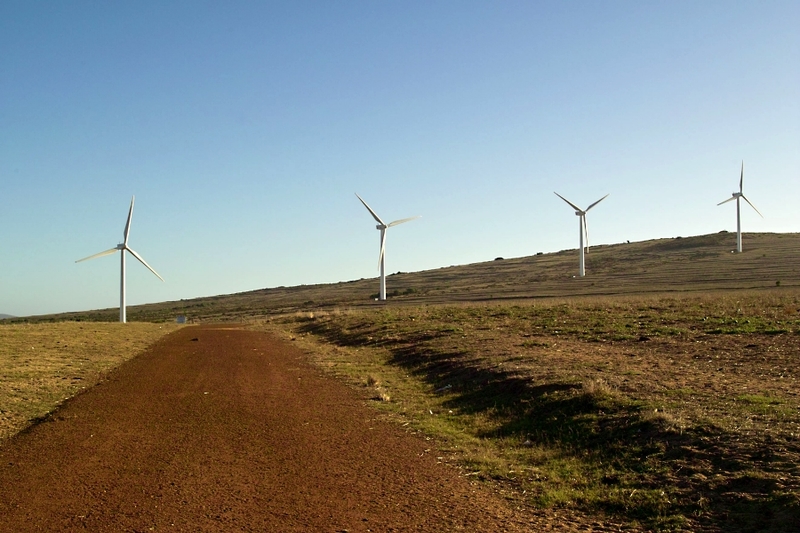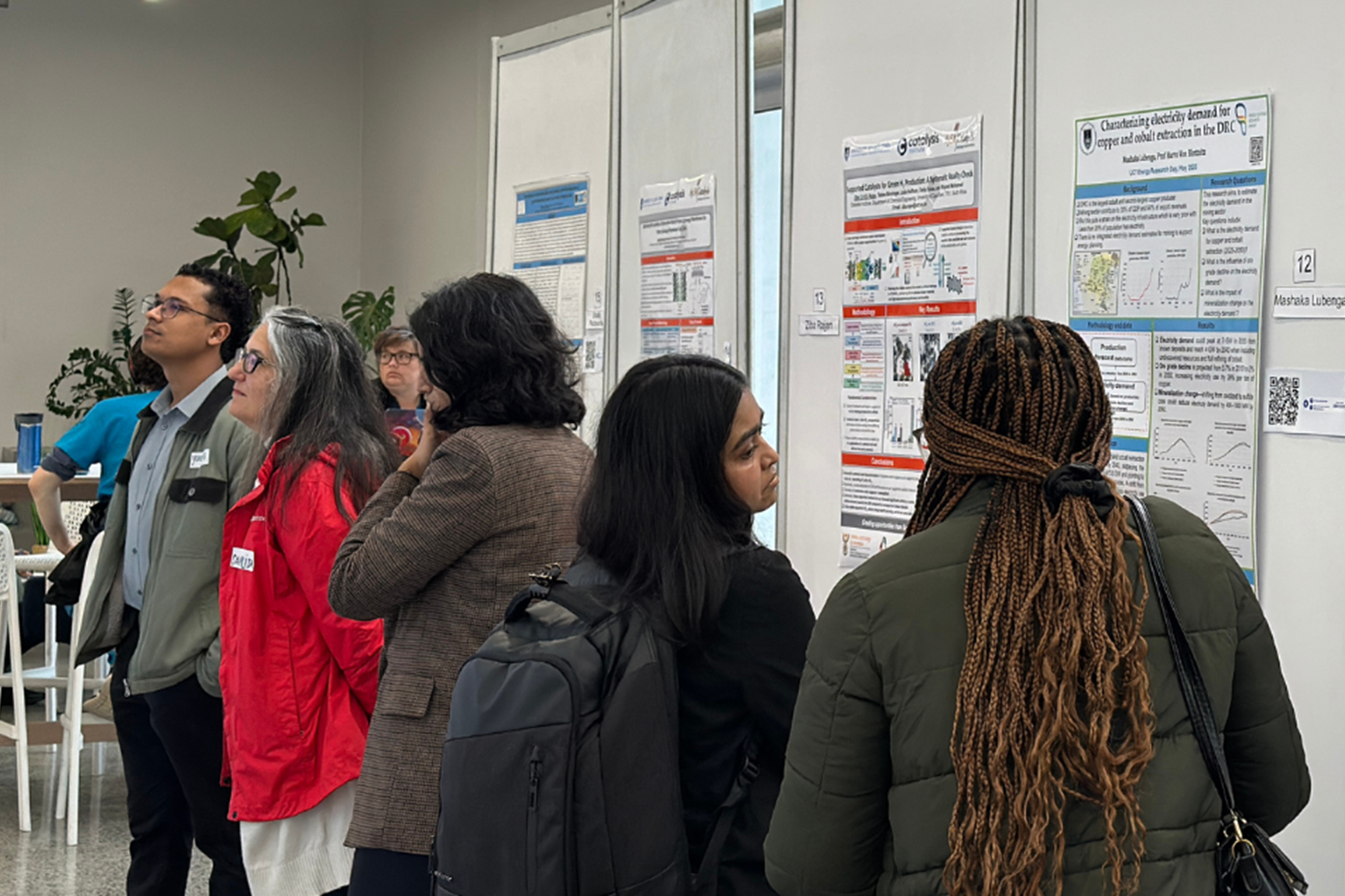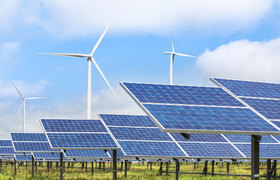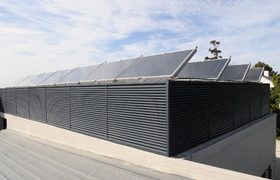UCT’s Energy Research Day: conducting collaboration through connection
02 July 2025 | Story Jess Oosthuizen. Read time 4 min.
The University of Cape Town’s (UCT) Energy Research Day provided a platform for sharing insights, showcasing research and fostering collaboration in energy-related fields. Spearheaded by Professor Jeff Murugan, UCT’s acting deputy vice-chancellor for Research and Internationalisation, the event was aimed at framing the future for this research at the university.
UCT research is critical in informing the evidence base for energy technology decision-making and its socio-economic implications, distribution of benefits, impacts on inequality, employment and infrastructure investments. The multi-disciplinary energy research spans across all faculties and disciplines including engineering, economic research, social scientific innovation research, political science and law.
The multi-facetted perspectives on just energy research support a holistic understanding of the nuances and complexities when navigating energy transition, climate governance and social justice in South Africa.
Energy underpins almost every aspect of our modern lives. “Each [energy] research breakthrough brings us closer to a thriving sustainable future for all,” said Professor Brandon Collier-Reed, deputy vice-chancellor for teaching and learning in his opening address at the event.
The event held on 29 May 2025 brought together over 50 researchers and postgraduates working across the full spectrum of energy research at UCT to share research insights and discuss some bold ideas.
Delving into the day
After the opening address, the event programme was structured around five facilitated sessions:
- Charting South Africa’s energy future
- Integrating systems and society
- Living with Transitions
- Systems, resources and innovation
- What next for energy research at UCT?
These sessions aimed to encourage discussion, collaboration and debate between energy researchers across the different faculties at UCT.
The poster presentation session gave postgraduates and early-career researchers the opportunity to share their work with the larger UCT research community. The winning posters were presented by:
- Noluvuyo Ndila (1st place), a doctoral candidate in Chemical Engineering
Title: ‘Tuning redox activity and selectivity in LaCoO₃ perovskites via B-site Mn for preferential CO oxidation in hydrogen streams for fuel cells’ - Thabiso Ntlebi (2nd place), a master’s student in Chemical Engineering
Title: ‘In-situ encapsulation of single Pt atoms inside MFI for hydrocracking’ - Rufaro Musabayana (3rd place), a master’s student from the Energy Systems Research Group
Title: ‘Developing a workflow to detect solar panels from aerial & satellite images’

“If we look at a global energy landscape, it’s exposed to a huge amount of disruption and urgency to address energy security issues,” said Professor Lenny Koh in her keynote presentation at the event. Professor Koh is the founder and director of the Energy Institute at the University of Sheffield; one of UCT’s foremost strategic research partners with energy as one of the key areas of this partnership.
“If we look at this energy system, we are facing a huge problem; this is a perfect storm,” said Koh. Highlighting the key factors causing this situation, she mentioned intensified climate change and the reduction of important natural resources which are critical in the production and consumption of energy.
Word from the attendees: Survey feedback
There were a myriad of comments from the post-event survey captured including some useful feedback from participants:
- “[The benefit was the] opportunity [to] present my research and thinking on [the] energy transitions to [a] mutli-disciplinary audience as well as to obtain sense of the kinds of research on energy at UCT,” – academic staff, Chemical Engineering.
- "It would be good to include stakeholders from government so that they can hear what the scientists are doing. Moreover, it will give a space for better discussion on the energy plan of the nation," – postdoctoral research fellow, Chemical Engineering.
- "Networking with energy researchers across campus offers a broad view of the energy research landscape. [The] UCT leadership and research office support of the event was commendable," – academic staff, Electrical Engineering.
“We should be the model for the way in which the rest of the world thinks about renewables …” – Professor Jeff Murugan
In his closing address Professor Murugan said: “We live in [both] an energy scarce country with loadshedding as a constant spectre [and] in an energy rich environment… We should be the model for the way in which the rest of the world thinks about renewables, good integration and all those things."
Murugan encouraged the energy community to continue to grow and urged them to redefine how they work together to leverage the potential opportunities available for further collaboration and funding. “We are in an extraordinarily unique position [at UCT],” he said.
Various initiatives are planned to sustain the momentum generated by this event.
 This work is licensed under a Creative Commons Attribution-NoDerivatives 4.0 International License.
This work is licensed under a Creative Commons Attribution-NoDerivatives 4.0 International License.
Please view the republishing articles page for more information.










